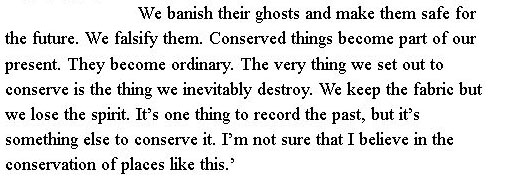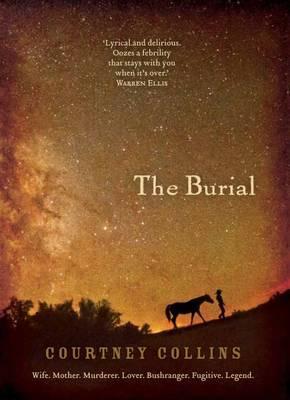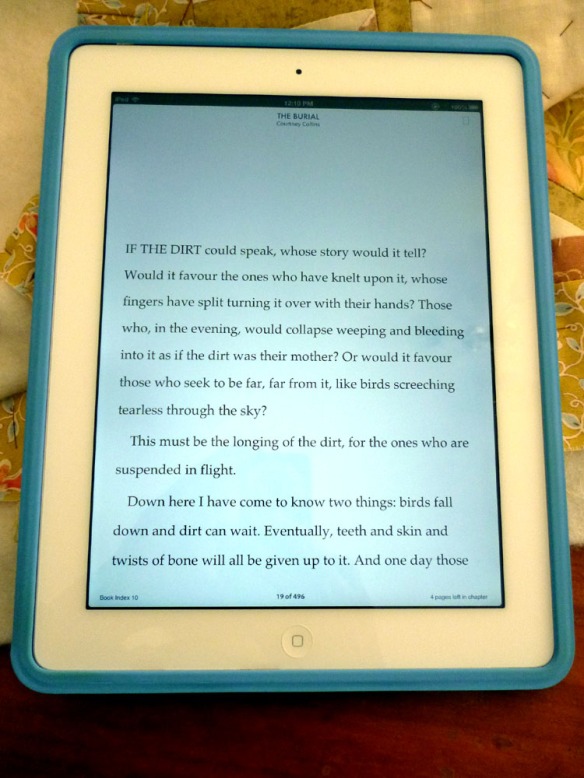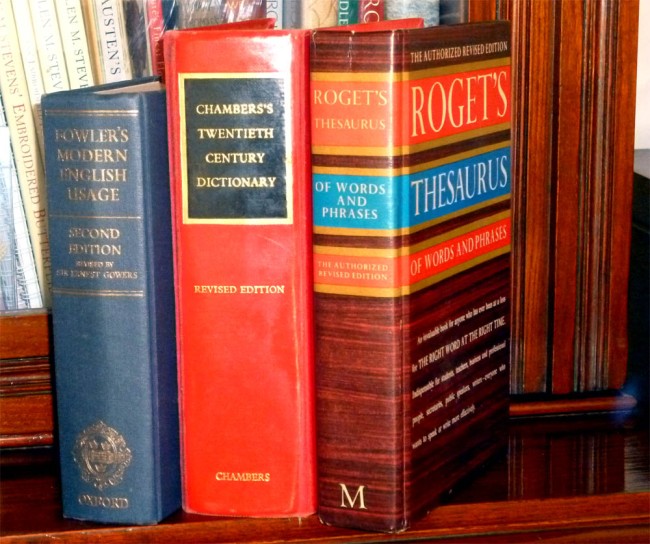Plenty has been written about the storyline of Journey to the Stone Country. We have a fortyish woman who was raised on an outback Queensland station and an aboriginal man who grew up in the same area. They meet and when working together visit a long deserted, decaying station house
The house was left with its contents intact so we are given an understanding of what the life was like when the occupants were alive. My interest was suddenly sparked when the question was raised about the rightness or otherwise of preserving or conserving objects from the past. exactly as they were found.
So imagine standing in the dining room of a fully furnished house whose air has not been disturbed by a human for a long while Can you feel the previous dwellers.? Do you feel comfortable or is there a shiver down your spine ? Do you feel that you are intruding on something private ?
 One thing we should all treasure is our privacy. With social media this is becoming something that people have less and less regard for. We can have our discussions in our blogs but surely we all draw the line at just how much about ourselves we will reveal. So if we preserve these objects from the past are we intruding on the privacy of the owners.
One thing we should all treasure is our privacy. With social media this is becoming something that people have less and less regard for. We can have our discussions in our blogs but surely we all draw the line at just how much about ourselves we will reveal. So if we preserve these objects from the past are we intruding on the privacy of the owners.
 When we do conserve the past does that intangible atmosphere disappear ?
When we do conserve the past does that intangible atmosphere disappear ?
 Alex Miller gives a very convincing argument which carries you along while you are reading. In this case it was a substantial house which was the object in question. But how often when driving out in the country have you seen a clump of daffodils just inside the paddock fence, or a lone fruit tree in a most unlikely place and you realise that once there was probably a hut or home on that site
Alex Miller gives a very convincing argument which carries you along while you are reading. In this case it was a substantial house which was the object in question. But how often when driving out in the country have you seen a clump of daffodils just inside the paddock fence, or a lone fruit tree in a most unlikely place and you realise that once there was probably a hut or home on that site
I have done a fair amount of family history research over the years and I have come across documents that have made me mentally apologize to the people for having intruded on their privacy, As far as I am concerned they will remain private.
But on the other hand look at this hut. It is tucked away in a back yard in Castlemaine, Victoria, and you can see it by driving up the side lane. Such a pretty little hut, or should I call it a cottage. My McDonald great-grandparents lived in this cottage in 1861-2 and had a couple of children there.
 I can use my imagination to try and re-create the lifestyle of Jane and Robert. Would I have different emotions if the cottage had been allowed to fall into disrepair ? Would I feel their ghosts beside me ? I am pleased that someone has taken the trouble to keep the cottage painted and in good repair.
I can use my imagination to try and re-create the lifestyle of Jane and Robert. Would I have different emotions if the cottage had been allowed to fall into disrepair ? Would I feel their ghosts beside me ? I am pleased that someone has taken the trouble to keep the cottage painted and in good repair.
Alex Miller would say that we have kept the fabric but lost the spirit.







 But Michael Frayn in Headlong is determined to educate me about Art, the History of Art and the History of the Netherlands. The words Iconography, Iconology, Nominalism and Breugel whirl around in my head. Don’t get me wrong. I quite enjoyed the book. But there were times I wanted to scream. GET OUT OF THE LIBRARY AND GET ON WITH THE PLOT !!
But Michael Frayn in Headlong is determined to educate me about Art, the History of Art and the History of the Netherlands. The words Iconography, Iconology, Nominalism and Breugel whirl around in my head. Don’t get me wrong. I quite enjoyed the book. But there were times I wanted to scream. GET OUT OF THE LIBRARY AND GET ON WITH THE PLOT !!



